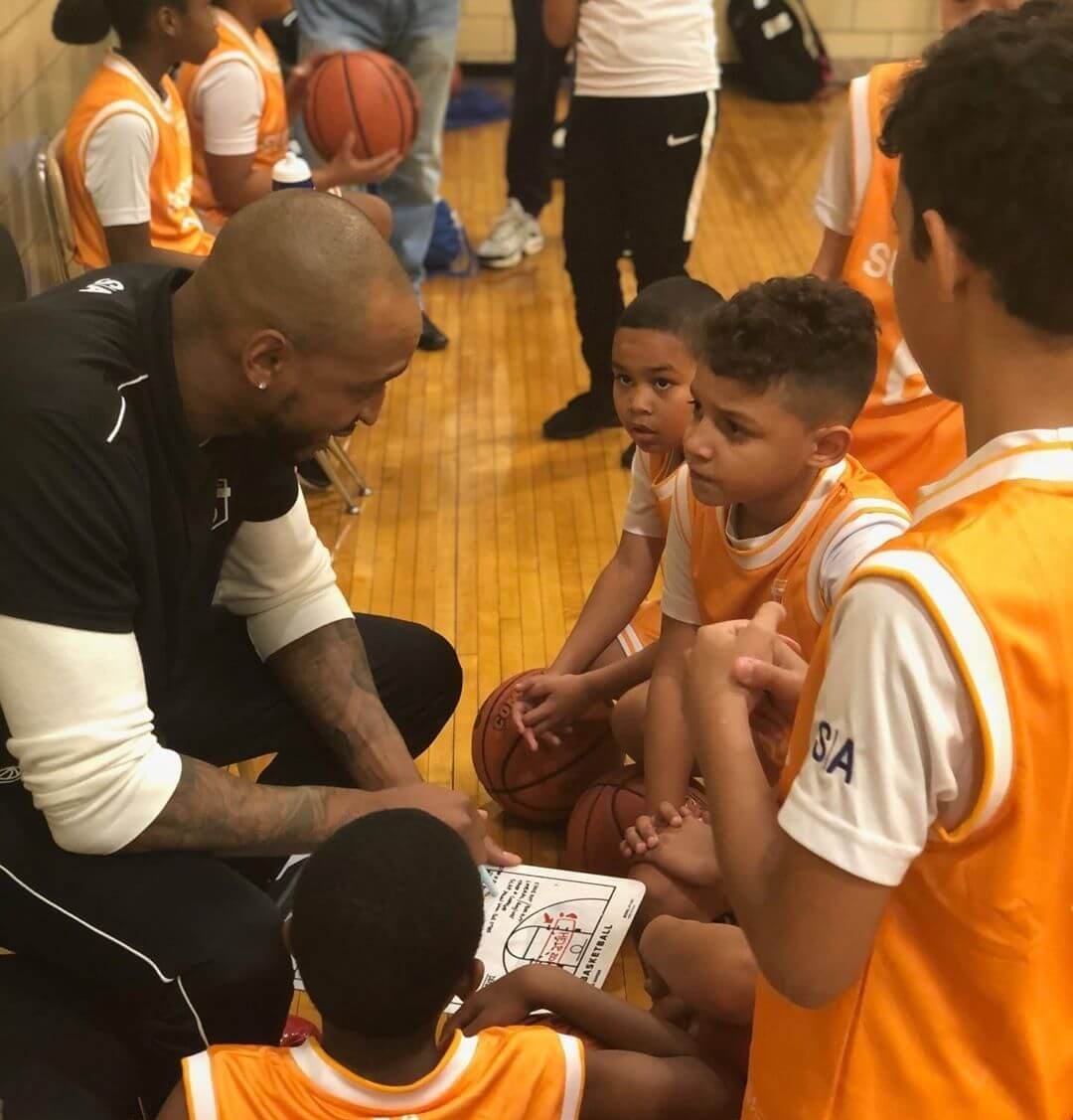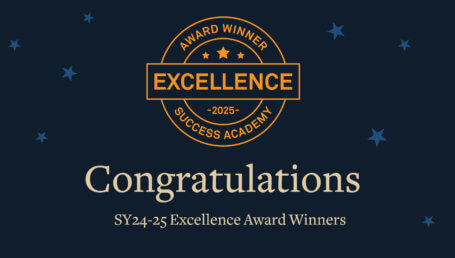
Imagine a Zoom call full of public school basketball coaches on the line with a New York Knicks icon. What kind of questions would the coaches ask? Would they focus on the glory moments — how it feels to step onto the court in a playoff game? What about the adrenaline rush of knocking down a shot in front of a sold-out Madison Square Garden? When Success Academy coaches met with nine-year Knicks veteran Allan Houston — who helped lead the team to the 1999 NBA Finals — none of these questions came up. Instead, they honed in on his advice about guiding and mentoring young athletes.
“Not a single coach asked Houston about his time in the league,” said Eric Harrield, who leads SA’s basketball program. “I knew in that moment that our coaches’ mindsets had developed and were aligned with mine, because this event was as much about life as it was about basketball.”
Houston joined SA coaches for a professional development event in January of this year, one of many Mr. Harrield has organized for his staff. These sessions regularly give coaches face time with some of the brightest basketball minds in New York, and are a key aspect of the basketball program’s mission of creating engaging learning opportunities for both scholars and coaches.
Mr. Harrield, whose basketball coaching career spans 13 years, says that one of the greatest lessons he’s learned as a leader is the importance of introducing basketball as more than just a game. Culture, fashion, history, social justice, and moral and personal development opportunities are all intertwined with dribbling, passing, and shooting. To really spark scholar appreciation for these lessons, Mr. Harrield knew his coaches would need to buy into this wider scope of the game, too.
This year was the first time SA’s basketball program launched a formal, network-wide curriculum that upholds Mr. Harrield’s coaching philosophy. His framework for lessons is simple: coaches should provide outstanding instruction on technical skills, but they should also focus on educating and mentoring scholars to help them become better students and well-rounded individuals. In each new unit, coaches emphasize two physical skills and one mental area of growth for their scholars. Scholars learn the importance of teamwork and communication alongside the technical aspects of passing and dribbling; they practice making good decisions under pressure just as much as taking buzzer-beating jump-shots.
Coaches should provide outstanding instruction on technical skills, but they should also focus on educating and mentoring scholars to help them become better students and well-rounded individuals.
SA coaches have responded to this approach by implementing incredibly thoughtful and engaging lessons that go well beyond the court. “The innovation and creativity that basketball coaches can bring to the “classroom” is often overlooked,” Mr. Harrield says. “We want to encourage coaches to think bigger, and I’ve been amazed at the response.”
For instance, middle school coaches like Content Leads Brian Mckenzie at SA East Flatbush MS and Mark Hill at SA Springfield Gardens MS use an elective period each week to teach scholars about topics like sports journalism, analytics, and management. They help scholars understand that basketball can be an entryway into mathematics, civic engagement, leadership — the list goes on. And SA Harlem 1 Coach Olivia Vetere created a presentation during Black History Month highlighting African-Americans’ contributions to basketball and encouraged scholars to make connections between history and current events.
The curriculum also involves film study for all scholars — something previously reserved for high schoolers — encouraging even our youngest dribblers to analyze things like defensive positioning and ball movement while developing critical thinking and self-reflection skills.
This year of remote learning did not stop coaches from focusing on their own growth as educators while still teaching the game on a deeper level, but Mr. Harrield knows that everyone is ready to hit the gym, shoot around with their friends, and play. When they do, Mr. Harrield still intends to make sure that competition isn’t the end-all, be-all. The result, he hopes, will be high-quality basketball played by scholars who are better off for having found the game.
“You can teach anyone how to dribble, shoot, and pass. But the skills you develop from the neck up are what separate the great ones.”

Success Academy middle school basketball coaches at a 2019 Professional Development event with Hall of Fame coach Bob Hurley.










